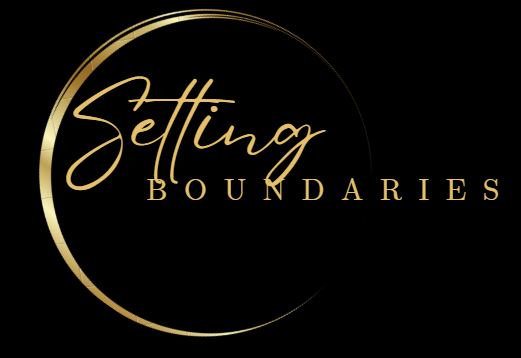In our increasingly interconnected world, where technology enables constant communication and social interaction, setting boundaries and personal space has become more crucial than ever. Boundaries serve as the invisible lines that define the limits of what is acceptable and respectful in our interactions with others. They establish guidelines for how we want to be treated, what we are willing to tolerate, and what makes us feel comfortable.
While setting boundaries can sometimes feel challenging or uncomfortable, it is an essential aspect of maintaining healthy relationships, preserving our well-being, and fostering self-respect. In this article, we will explore the importance of setting boundaries and personal space with others and provide practical strategies for implementing and enforcing them.
Defining Boundaries and Personal Space
Boundaries can be thought of as emotional, physical, and psychological limits that we establish to protect our well-being and maintain a sense of self. They define the space where we end and others begin, ensuring that our values, needs, and priorities are respected. Personal space, on the other hand, refers to the physical and emotional distance we desire between ourselves and others.
Setting boundaries involves clearly communicating our needs, desires, and limits to others, as well as understanding and respecting the boundaries of those around us. It is crucial to recognize that boundaries may vary from person to person, and what feels comfortable for one individual may not be the same for another.
Preserving Emotional and Mental Well-being
Setting and enforcing boundaries is vital for safeguarding our emotional and mental well-being. When we allow others to cross our boundaries consistently, it can lead to feelings of resentment, exhaustion, and emotional distress. By establishing and maintaining healthy boundaries, we create a protective space that allows us to prioritize self-care, maintain emotional balance, and preserve our overall mental health.
For example, setting limits on the amount of time and energy we dedicate to work or social commitments can prevent burnout and ensure we have the necessary time for rest, relaxation, and pursuing activities that bring us joy. It also allows us to prioritize our own needs and values, rather than constantly accommodating the demands and expectations of others.
Building Respectful and Fulfilling Relationships
Clear and well-defined boundaries are the foundation of healthy and fulfilling relationships. They provide a framework for mutual respect, open communication, and understanding. When we establish our boundaries and communicate them effectively, we give others the opportunity to understand our needs and expectations.
Respecting and honoring the boundaries of others is equally important. By acknowledging and respecting the limits set by our loved ones, friends, and colleagues, we contribute to the creation of a supportive and trusting environment where everyone feels valued and heard.
Enhancing Self-Respect and Empowerment
Setting and enforcing boundaries is an act of self-respect and empowerment. It demonstrates that we value our own needs, opinions, and well-being enough to assert ourselves in various situations. When we have clear boundaries, we are more likely to advocate for ourselves, assert our rights, and make choices that align with our values and desires.
By recognizing and communicating our boundaries effectively, we establish a sense of agency and control over our lives. This, in turn, boosts our self-esteem, enhances our confidence, and fosters a positive self-image.
Strategies for Setting Boundaries
a) Self-Reflection: Start by reflecting on your own needs, values, and priorities. Understand what makes you feel comfortable and what feels like a violation of your boundaries. This self-awareness will serve as a guide when communicating your boundaries to others.
b) Clear Communication: Clearly and assertively communicate your boundaries to others. Use “I” statements to express your needs and expectations without blaming or criticizing. Be direct, honest, and respectful in your communication.
c) Practice Saying No: Learn to say no when a request or situation goes against your boundaries or is something you are not comfortable with. Saying no is not selfish; it is an act of self-care and self-preservation.
d) Set Consequences: Establish consequences for those who consistently disregard or disrespect your boundaries. Communicate these consequences clearly and be prepared to follow through if necessary. Consistency in enforcing boundaries is crucial for establishing healthy relationships.
e) Seek Support: Reach out to a trusted friend, family member, or therapist for support and guidance. Discuss your challenges and successes in setting boundaries and seek advice on navigating difficult situations.
Conclusion
Setting boundaries and personal space is essential for maintaining healthy relationships, preserving our well-being, and fostering self-respect. By defining our limits and communicating them effectively, we create a protective space that allows us to prioritize self-care, maintain emotional balance, and cultivate fulfilling connections with others.
Remember, setting boundaries is not selfish or mean; it is a necessary act of self-preservation. By valuing our own needs and communicating them clearly, we empower ourselves and establish a strong foundation for healthy, respectful, and mutually satisfying relationships.
If you like what you have read, check out other articles on the website ThinkingDeeplySelf-Critically.com The site is designed to give us tools and techniques to help us become the best version of ourselves. There are four main categories on the site. The Foundation, Our Responsibility to Us, Our Responsibility to Others and Facilitating Crisis. We can also be found on Pinterest.


